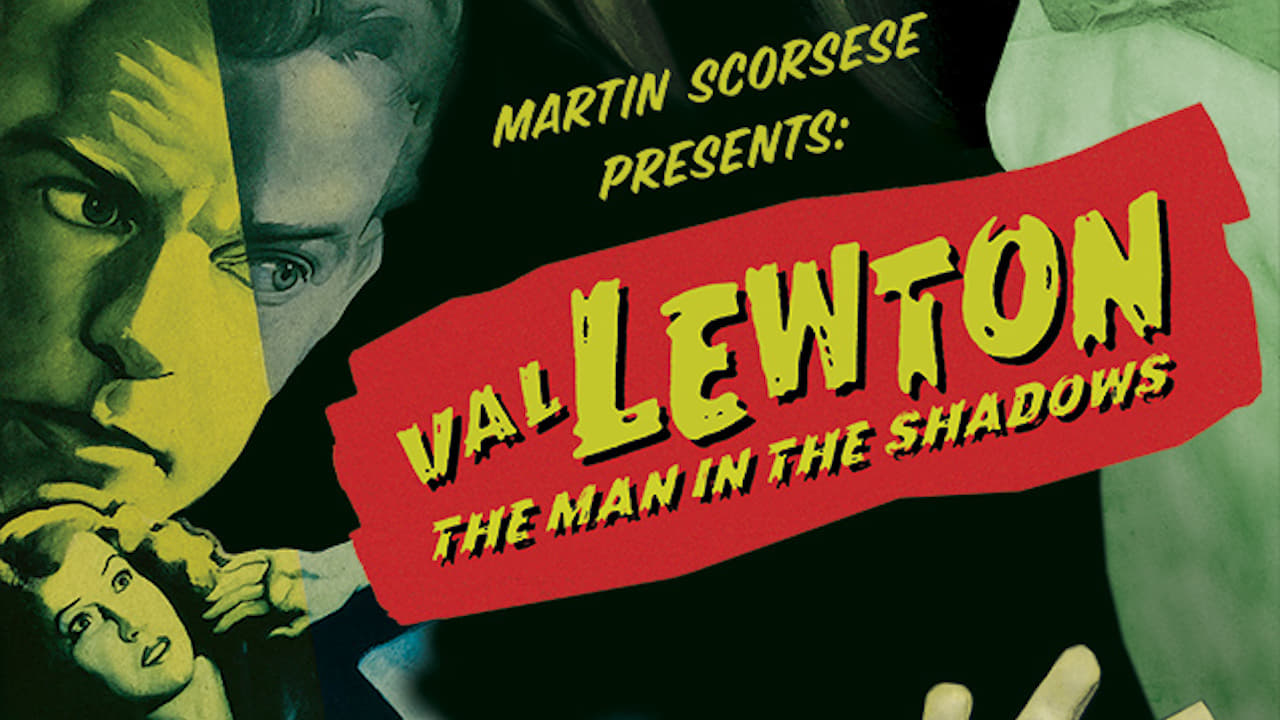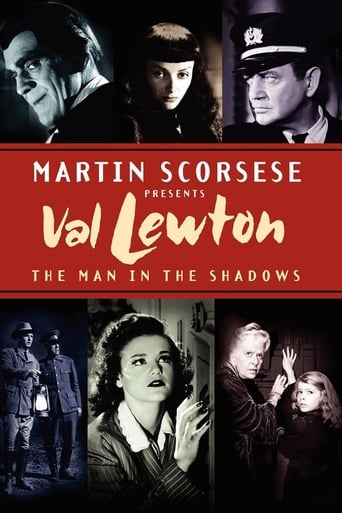

This 77-minute documentary covers a lot of interesting and illuminating ground on acclaimed producer Val Newton, who made a name for himself with a series of moody low-budget horror films done in the 1940's for RKO Radio Pictures. Among the things we learn about Lewton was that he was a modest and unassuming guy who grew up around powerful women and attended military school, Lewton was a writer prior to becoming a producer, and he was an idealist who loved the sea. Moreover, we also find out that Lewton was an extremely hands-on producer who preferred that things be suggested instead of shown in his movies, he married his high school sweetheart, and later on in his career Lewton had trouble getting various projects off the ground. Nicely narrated with reserved aplomb by Martin Scorsese, with insightful interviews with such folks as Newton's son Val E. Newton, Roger Corman, and director Jacques Tourneur, it's essential viewing for Val Lewton fans.
... View More"The Man In the Shadows" is a fairly interesting bio-documentary that covers the life and career of low-budget, B-movie producer, Val Lewton, who worked almost exclusively for RKO Studios (poverty row) from the years 1942-1951.Originally from Russia - Lewton was clearly one of those very resourceful men who knew just how to produce good quality horror pictures on budgets of only $150,000, or less.Through stills, film clips, and interviews - The viewer learns all about the ins & outs of being a successful, but unappreciated, film producer like Lewton.*Note* - In 1951 (at the age of 46) Val Lewton died from a heart attack.
... View MoreVal Lewton was born in Russia and emigrated as a child with his family to America. He worked around the outskirts of Hollywood for a while before becoming a producer of what were called horror films at RKO Studios. This was in the early 1940s. He died shortly after the end of the war, of a heart condition.During his active period, this melancholy and retiring man -- who rewrote all his scripts without taking any screen credit -- led a unit of friends and compatible colleagues that produced some of the most haunting, small-budget, eerie movies to come out of Hollywood, about nine all together.This documentary by Martin Scorsese is an appreciation of Lewton's work, and nicely done it is. Lewton deserves all the attention and thought that went into the documentary. There are abundant excerpts from his films and interesting commentaries from a handful of talking heads, including that of the little girl from "The Curse of the Cat People", now fully grown."The Curse of the Cat People" is emblematic of the titles and material being thrown at Lewton while he was at RKO. The studio had just produced "Citizen Kane," a ruinously expensive flop at the time, and its new motto was "Showmanship, Not Genius." An additional impetus to the formation of Lewton's unit came from the success of Universal Studios' monster movies: "Frankenstein," "Dracula," "The Wolfman," "The Curse of Frankenstein," "The Briss of Dracula," and what not. The intention was for Lewton to make competitive monster movies at less cost. He did considerably more than that. He was stuck with the lurid titles and the sometimes irrational plots but he managed to polish the stories and see that they were filmed with impeccable taste.The narration is well written and insightful. Here's an instance of what I mean. I'd never realized it before but the most hair-raising moments in Lewton's movies are handled very briefly. They last only an instant or two -- a bus hissing to a halt, a trickle of blood under a door, the hoof beats of a horse turning into a flapping old automobile tire -- whereas today one would find these effects not only made more explicit but lingered over until the audience was on the edge of exhaustion or maybe beyond that.For those who are interested, there is a boxed set of nine of Lewton's best films now available on DVD, and each film is accompanied by a knowledgeable commentary.
... View MoreBorn in Yalta in the early 1900s to Russian parents, film producer Val Lewton was raised in America by his mother and sister, honing a colorful imagination even through his years at military school; he wrote articles and published a few pulpy stories before landing in Hollywood as protégé to David O. Selznick. Selznick turned out to be a helpful boss but was no father-figure, rarely if ever giving Lewton credit for the work he did on pictures such as "Anna Karenina" and "Gone With the Wind". A movie-producing offer eventually came from financially-strapped RKO, who hoped a series of low-budget thrillers would get them back in the black, and Val Lewton was on his way. This documentary on Lewton's career (produced in conjunction with Turner Classic Movies by Martin Scorsese, who also narrates) is nearly bereft of details on Lewton's personal life, mostly due to the fact no documents exist of his recorded voice. Photos and letters written by Lewton help to fill in the gaps, but we never get much sense of the reported turmoils and trouble Lewton went through while working in Hollywood. We also are not privy to much information that went on in the RKO offices with each new Lewton release, only that his films were "successful" up to and including 1946's "Bedlam". If all or most of his films were so popular, what accounted for Lewton's anxieties? He and his wife raised two children--a girl who is unaccounted for here, and a son who has grown up seemingly in the dark regarding his father's business affairs--but what happened to his supporters? Editor Mark Robson and director Robert Wise, themselves protégés of Val Lewton, later found success on their own but failed to extend an olive branch to Lewton once tastes in Hollywood changed. Yet, instead of acknowledging the fact that Lewton was out of step with the times, Robson and Wise are left looking like false friends. The special is clip-heavy, with a finely-tuned parallel atmosphere to compliment the array of sequences, yet it doesn't cut very deep. Still, if the central desire here was to create an interest in Val Lewton's productions for audiences unaware of his languid, elegiac and stylized mood pieces, then "The Man in the Shadows" certainly succeeds. It thoughtfully whets the appetite for an evening's worth of Lewton product, and the artful way in which he was able to combine good and evil with the most subtle of touches.
... View More